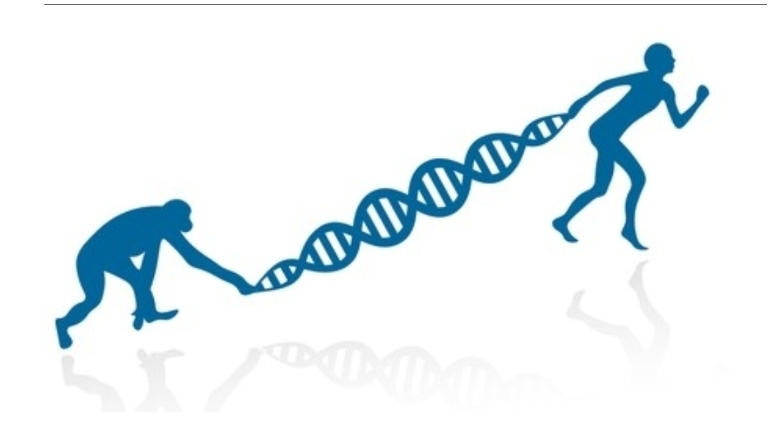Synonymous Mutations: A New Challenge to Evolutionary Dogma
The journal article "Effects of synonymous mutations beyond codon bias: the evidence for adaptive synonymous substitutions from microbial evolution experiments" challenges long-held assumptions in molecular biology and evolutionary theory. The central premise of the article is that synonymous mutations, which were once considered "silent" and evolutionarily neutral, can actually have a significant impact on an organism's fitness and contribute to adaptive evolution. This is a radical departure from the traditional view that only mutations changing the amino acid sequence (non-synonymous mutations) are subject to natural selection. The article provides evidence from microbial evolution experiments, showing that synonymous mutations can drive adaptation by affecting gene expression, mRNA stability, and protein folding, all without changing the final protein product.
Challenging Francis Crick's "Frozen Accident"
Francis Crick’s "frozen accident" hypothesis attempts to explain the near-universality of the genetic code across all life. The theory posits that the specific assignments of codons to amino acids were initially a matter of chance, a random "accident" that occurred in the earliest stages of life. Once this code was established, it became "frozen" because any subsequent change would be highly deleterious. This is because a single change to a codon assignment would alter the amino acid sequence of a vast number of essential proteins, a catastrophic outcome for the organism. The code is therefore seen as a stable, unchangeable feature of life, locked in place by strong purifying selection.
The findings on adaptive synonymous substitutions challenge this idea. If synonymous mutations can be adaptive and contribute to fitness, it suggests that the genetic code, while stable, is not "frozen." Instead, there is a subtle but ongoing adaptive pressure on the code itself. The fact that a single base pair change that doesn't alter the amino acid can be beneficial implies that the code is more adaptable and subject to fine-tuning than the "frozen accident" theory would suggest. While the fundamental codon-amino acid assignments remain fixed, the code's degeneracy (multiple codons for the same amino acid) provides a landscape for adaptive refinement that Crick's theory overlooks.
Challenging the Central Dogma
The central dogma of molecular biology, as articulated by Crick, states that genetic information flows in one direction: from DNA to RNA to protein. A key implication of this is that the protein sequence is solely determined by the DNA and RNA sequences. The traditional view of synonymous mutations perfectly aligned with this dogma; since they don't change the amino acid, they are a kind of "noise" that falls outside the main flow of information. The central dogma's linear, one-way flow of information from genotype to phenotype is based on the idea that the primary determinant of a protein's function is its amino acid sequence.
However, the evidence presented in the journal article challenges this simple linear model. The article shows that a synonymous mutation, which doesn't alter the amino acid sequence, can still have a profound effect on the final protein's function and the cell's fitness. This happens through secondary effects, such as altering the mRNA's folding, which in turn affects the speed and efficiency of translation, or changing how the nascent polypeptide chain folds. In this way, the DNA sequence is not just a blueprint for the amino acid sequence; it also contains information about the kinetics and dynamics of gene expression and protein folding. This introduces a feedback loop and a level of complexity that the central dogma, in its most simplistic form, does not account for. The genetic information is not just about the final product (the protein sequence), but also about the process of its creation.
Challenging the Modern Synthesis
The Modern Synthesis of evolutionary biology combined Darwin's theory of natural selection with Mendelian genetics, creating a unified framework for understanding evolution. It emphasizes that evolution occurs through changes in allele frequencies in populations, driven by natural selection acting on heritable variation (mutations). Within this framework, synonymous mutations were long considered a prime example of neutral evolution changes that are not subject to selection and simply drift through a population over time.
The article's findings challenge this key assumption of neutrality. By demonstrating that synonymous mutations can be adaptive, the paper provides evidence that they are not just "background noise" but are actively shaped by adaptive variation. This forces a re-evaluation of how we interpret genetic data and model evolutionary processes. It suggests that a significant portion of genetic variation that was previously ignored as neutral may actually be under selective pressure. This expands the scope of what constitutes an evolutionarily significant mutation. Instead of just focusing on non-synonymous changes, researchers now must consider the subtle, but powerful, effects of synonymous substitutions on gene expression and protein kinetics.
The Modern Synthesis is shown to be incomplete, as it did not fully appreciate the full spectrum of molecular mechanisms through which mutations can impact fitness. The paper suggests that a more nuanced, "post-genomic" synthesis is needed to incorporate these new findings.




Comments
Post a Comment